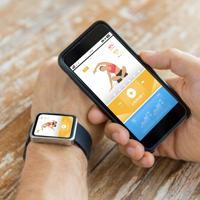In today's world, technology plays a significant role in our daily lives, especially when it comes to enhancing our health and fitness. Two popular wearable devices, fitness trackers and smartwatches, often come up in the conversation. Although they share some features, understanding the key differences can help you decide which one suits your lifestyle the best.
Fitness Trackers: A Closer Look
Fitness trackers primarily focus on monitoring physical activities and health metrics. These devices began as simple tools to count steps but have evolved into sophisticated gadgets capable of tracking various activities and metrics.
Key Features of Fitness Trackers:
Steps and Calories: Most fitness trackers count steps and estimate calories burned based on your activity level.
Heart Rate Monitoring: Modern fitness trackers often come with continuous heart rate monitoring, which is useful for tracking your resting heart rate and optimizing workouts.
Sleep Tracking: Many fitness trackers can monitor sleep patterns, helping you understand your sleep quality. Learn more about monitoring your sleep with fitness trackers.
Activity Reminders: Keep moving throughout the day with reminders to get up and stretch, a feature common in devices like the Fitbit Charge or Garmin Vivosmart.
Lightweight and Slim Design: Generally, fitness trackers are smaller and lighter than smart watches for fitness tracking, making them comfortable for continuous wear.
Popular Fitness Tracker Options:
- Fitbit Series: Offers various models focusing on different fitness and health metrics.
- Garmin Vivosmart: Known for its robust features tailored to athletes and fitness enthusiasts.
Smartwatches: More Than Just Telling Time
Smartwatches, while capable of tracking fitness-related activities, are multifaceted devices that combine the functionality and connectivity of a smartphone with a watch.
Key Features of Smartwatches:
Connectivity: Smartwatches often allow you to receive notifications, calls, and messages. Devices like the Apple Watch and Samsung Galaxy Watch let you reply to messages or answer calls directly.
Apps and Customization: Support a variety of apps that can be installed to extend functionality. For example, music services, navigation, and productivity tools are frequently used.
GPS Functionality: Built-in GPS is common, beneficial for those who enjoy outdoor activities like running, cycling, or hiking.
Fitness and Health Tracking: In addition to basic tracking, some smartwatches offer advanced features. For example, the Apple Watch can perform ECG tests and measure blood oxygen levels.
Robust Designs: Typically larger and heavier than fitness trackers, with designs varying from sleek and modern to sporty and rugged.
Popular Smartwatch Options:
- Apple Watch Series: Known for its extensive app ecosystem and health features.
- Samsung Galaxy Watch: Offers compatibility with Android devices and packs numerous features, including Samsung's health suite. This contrasts sharply with the features and compatibility offered by the Apple Watch.
Making Your Choice: Considerations
When choosing between a fitness tracker and a smartwatch, consider your primary goals and lifestyle. If you aim to improve fitness with minimal distractions and prioritize long battery life, a fitness tracker might be the right choice. However, if you want broader functionality and the convenience of connectivity at your wrist, a smartwatch might serve you better.
Things to Consider:
- Budget: Fitness trackers generally cost less than smartwatches.
- Battery Life: Typically, fitness trackers have longer battery life compared to smartwatches.
- Intended Use: Decide whether you need a focus on fitness, or if connectivity and versatility are your priority.
Both devices bring valuable features to the table, and advancements over time continue to bridge the gap between their functionalities. Ultimately, understanding your needs and preferences will guide you to the device that best supports your smart lifestyle with technology.
While technology evolves and these devices become more sophisticated, keeping up with the latest from brands might introduce newer features or integrations worth exploring. We suggest visiting TechLiving.com for more insights and reviews to stay updated on the latest wearable tech developments.



